Texts
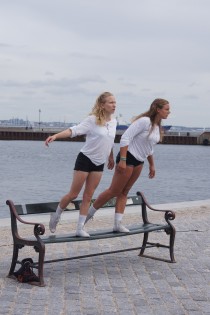
Spaces Redrawn By Theatre
Passage festival: dialogue of urban and theatrical spaces Abstract Dissolution of physically defined borders between stage and public in theatre performances conceived in public spaces extends and challenges our perception, understanding and analytical approach on real and imaginary spaces; and

Spaces Redrawn By Theatre
Passage festival: dialogue of urban and theatrical spaces Abstract Dissolution of physically defined borders between stage and public in theatre performances conceived in public spaces extends and challenges our perception, understanding and analytical approach on real and imaginary spaces; and
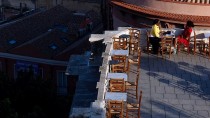
Transparent
There is a man standing by our table. I sit fidgeting with my newly bought pearl necklace on the terrace of a high-end restaurant in Parma. The waiter is fast and funny like in old French comedies and, apart from

Transparent
There is a man standing by our table. I sit fidgeting with my newly bought pearl necklace on the terrace of a high-end restaurant in Parma. The waiter is fast and funny like in old French comedies and, apart from

Perfect Stranger
Author of a migrant blog started in July 2013 – on the page of Commmunity: Respect for All.
“After having left Romania for Hungary with a backpack in 1998, putting myself to sleep with some inconceivable promises regarding a more exciting, satisfactory and yes, more lucrative life, I am heading towards Denmark, now, fifteen years later. This time to encounter and capture the experience of migration as it is – to soak my life again with the most stunning convulsion I have ever gone through. To re-enact the luckiest or the most imprudent decision I have ever taken. The story begins here.”
http://www.commmunity.eu/perfectstranger/

Perfect Stranger
Author of a migrant blog started in July 2013 – on the page of Commmunity: Respect for All.
“After having left Romania for Hungary with a backpack in 1998, putting myself to sleep with some inconceivable promises regarding a more exciting, satisfactory and yes, more lucrative life, I am heading towards Denmark, now, fifteen years later. This time to encounter and capture the experience of migration as it is – to soak my life again with the most stunning convulsion I have ever gone through. To re-enact the luckiest or the most imprudent decision I have ever taken. The story begins here.”
http://www.commmunity.eu/perfectstranger/
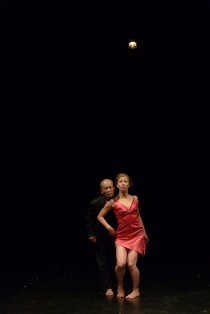
Hungarian Butoh
Leftover Shadow – Ko Morobushi & Batarita. Picture by: Péter Pettendi Szabó
On the poster of the 2006 Thailand Royal Command Performance there was a photography of a Hungarian dancer.

Hungarian Butoh
Leftover Shadow – Ko Morobushi & Batarita. Picture by: Péter Pettendi Szabó
On the poster of the 2006 Thailand Royal Command Performance there was a photography of a Hungarian dancer.
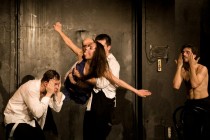
The dramaturgy of space in Maladype’s productions
A short essay by Michel Foucault on the changes of meaning and subsistence of space was only published posthumously, in the eighties,[1] and has therefore not been included in the official corpus of his work. The topic had probably occupied

The dramaturgy of space in Maladype’s productions
A short essay by Michel Foucault on the changes of meaning and subsistence of space was only published posthumously, in the eighties,[1] and has therefore not been included in the official corpus of his work. The topic had probably occupied

Theatrical interventions
On five recent performances of Maladype theatre During the almost ten years of its existence the approach of the Maladype towards the dramatic text, acting and public took a sharp turn. At the beginning of the 2000s the company emerged

Theatrical interventions
On five recent performances of Maladype theatre During the almost ten years of its existence the approach of the Maladype towards the dramatic text, acting and public took a sharp turn. At the beginning of the 2000s the company emerged
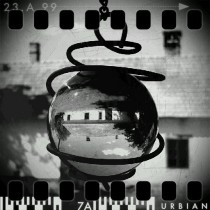
Reading remote places in Aeschylus’ early tragedies
It is widely accepted nowadays that when reading ancient Greek tragedies, Aristotle’s Poetics should no longer be considered the pre-eminent code of rules for Greek tragedies as was the case for hundreds of years. From the 1950s onwards, scholars such as A.W. Pickard-Cambridge, Oliver Taplin, A. M. Dale, H. D. F. Kitto – to mention only the most effective researchers – released new ways of approaching Greek tragedies,[1] interpreting the whole genre as a kind of megatext that functions like an enormous web of plots, characters and events related to each other by endless denotations and references.

Reading remote places in Aeschylus’ early tragedies
It is widely accepted nowadays that when reading ancient Greek tragedies, Aristotle’s Poetics should no longer be considered the pre-eminent code of rules for Greek tragedies as was the case for hundreds of years. From the 1950s onwards, scholars such as A.W. Pickard-Cambridge, Oliver Taplin, A. M. Dale, H. D. F. Kitto – to mention only the most effective researchers – released new ways of approaching Greek tragedies,[1] interpreting the whole genre as a kind of megatext that functions like an enormous web of plots, characters and events related to each other by endless denotations and references.
